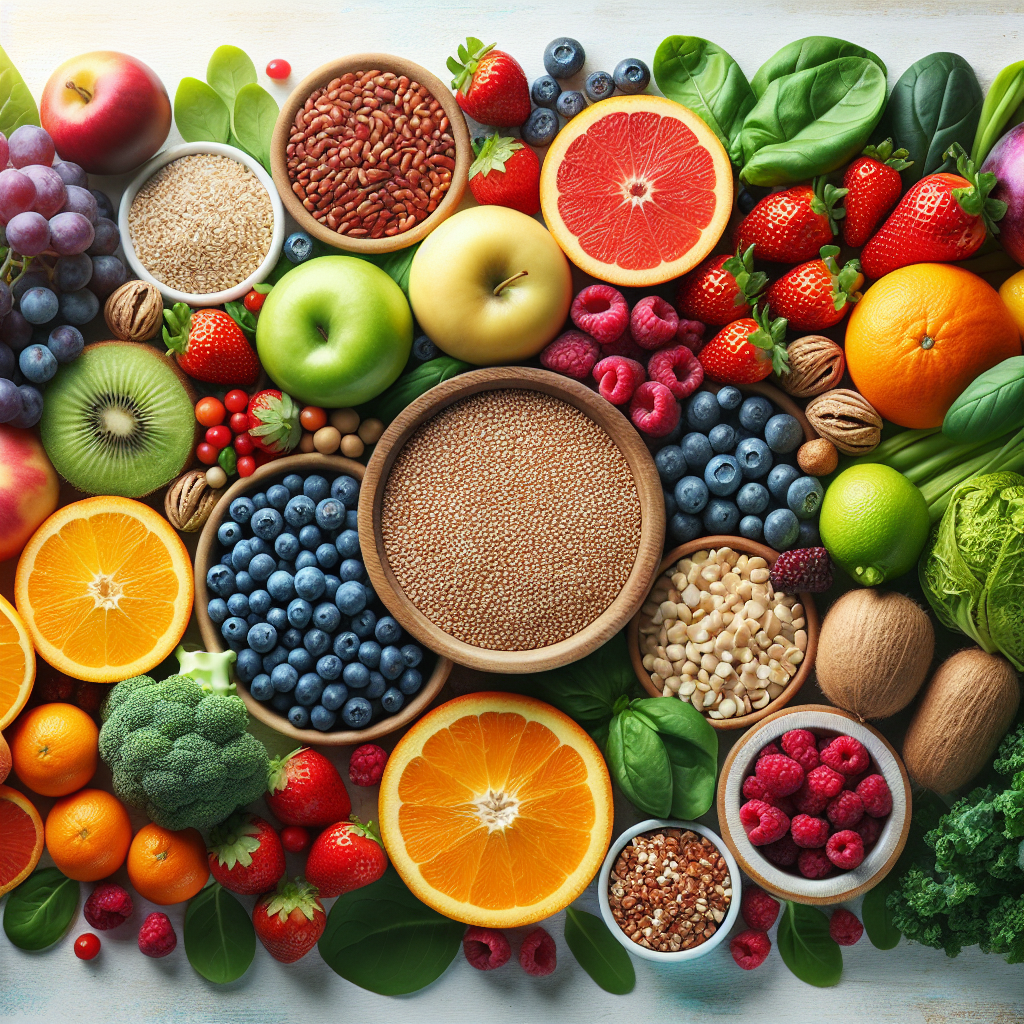How Organic Foods Can Help Reduce Varicose Veins
Varicose veins are swollen, twisted veins that often appear on the legs and can cause discomfort, pain, and swelling. While medical treatments exist, incorporating organic, nutrient-dense foods into your diet may help improve circulation and reduce symptoms naturally. Organic foods, free from pesticides and synthetic additives, provide optimal levels of bioavailable nutrients that support vein health.
The Role of Flavonoids in Vein Health
Flavonoids are plant compounds known for their anti-inflammatory and circulation-boosting properties. These antioxidants strengthen blood vessels, reduce swelling, and improve blood flow—key factors in managing varicose veins. Organic foods rich in flavonoids include:
- Citrus fruits (oranges, lemons, grapefruits): High in rutin, a flavonoid that reinforces vein walls.
- Buckwheat: A gluten-free grain packed with rutin and quercetin.
- Berries (blueberries, blackberries, cherries): Contain anthocyanins that reduce vein inflammation.
- Dark leafy greens (kale, spinach): Rich in vitamin K and flavonoids to support blood vessel integrity.
Top Organic Foods for Varicose Vein Relief
1. Citrus Fruits and Rutin
Oranges, lemons, and grapefruits are rich in vitamin C and rutin, a flavonoid that combats venous insufficiency. Rutin helps reduce capillary permeability, preventing fluid leakage into surrounding tissues—a common issue with varicose veins. Consuming organic citrus ensures higher nutrient density without chemical residues that may impair absorption.
2. Buckwheat for Circulation
Buckwheat, a nutrient-dense pseudo-grain, contains more rutin than almost any other food. Studies suggest that rutin improves microcirculation, reduces leg swelling, and strengthens weak veins. Organic buckwheat can be consumed as groats, flour, or tea for maximum benefits.
3. Dark Leafy Greens
Kale, spinach, and Swiss chard are loaded with vitamin K, which supports proper blood clotting and reduces vein discoloration. These greens also provide magnesium, a mineral that relaxes blood vessels and improves circulation. Opt for organic varieties to avoid pesticide exposure, which can exacerbate inflammation.
4. Berries and Anthocyanins
Blueberries, blackberries, and raspberries contain anthocyanins, pigments that protect blood vessels from oxidative stress. These compounds enhance collagen production, keeping veins elastic and resilient. Organic berries have higher antioxidant levels compared to conventionally grown options.
5. Garlic and Onions
These sulfur-rich foods promote blood thinning and prevent platelet clumping, reducing pressure in varicose veins. Organic garlic contains more allicin, an active compound with anti-inflammatory benefits.
Additional Dietary Tips for Managing Varicose Veins
Stay Hydrated with Organic Herbal Teas
Dehydration thickens blood, worsening vein pressure. Sip organic herbal teas like horse chestnut or ginger tea, which improve circulation naturally. Avoid caffeine and alcohol, as they dehydrate and constrict blood vessels.
Increase Fiber Intake
Constipation strains veins in the lower body. Organic fiber sources like flaxseeds, chia seeds, and whole grains ease digestion and reduce unnecessary pressure on veins.
Limit Processed and Salty Foods
Excess sodium causes water retention, increasing swelling in the legs. Choose organic, low-sodium alternatives and focus on fresh, whole foods.
Lifestyle Changes to Complement Your Diet
While diet plays a crucial role, combining it with these habits enhances results:
- Exercise regularly: Walking, swimming, or yoga improves circulation and muscle tone.
- Elevate your legs: Reduces pooling of blood in the veins.
- Wear compression stockings: Provides external support to weakened veins.
Conclusion
Organic foods rich in flavonoids, vitamins, and minerals offer a natural way to alleviate varicose vein symptoms. By prioritizing citrus, buckwheat, leafy greens, and berries, you can strengthen veins, reduce inflammation, and improve circulation. Pairing these dietary changes with hydration and exercise creates a holistic approach to vein health.
